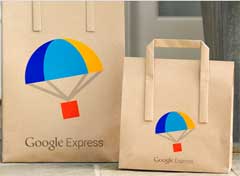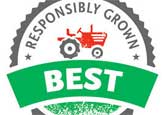| |
|
| |
|
 |
Supply
Chain by the Numbers |
| |
|
| |
- Oct. 16, 2014 -
|
| |
|
| |
|
| |
|
| |
Google Ups its eFuflilment Game; Walmart Continues to Change Its Store Mix, Invest in eCommerce; Oil Prices Plunge, Could Cause GeoPolitical Issues; New Whole Foods Responsibly Grown Labels |
| |
|
| |
| |
| |
$95 |

|
|
|
| |
| |
|
16
|
 |
Number of steps that produce and flower suppliers will have to have adhered to gain a "good" designation from grocer Whole Foods, which is launching a new "responsibly grown" labeling system in its 400 stores. The steps are related to how a supplier "protects the air, soil, water and human health," according to the company. The steps vary in difficultly, however, and range from ensuring the supplier meets its rules regarding matters such as irrigation to stopping the use of several pesticides. There will also be "better" and "best" designations too, though Whole Foods has not yet made those requirements public. The rankings will be noted on signs where prices are listed, and mirrors a similar program the grocer has for meat and seafood. The company is trying to differentiate its offerings from "organic" or "healthy" labeled products from large grocery chains.
|
| |
| |
|
| |
| |
$85 |
|
The global price for a barrel of Brent crude on Thursday, as the price of oil continues to plunge. That’s down some 25% from the recent high of $112 in June, and the lowest level seen since the summer of 2010, in a fall that has been steep and fast. Gasoline and diesel prices have been dropping in kind, perhaps providing a boost to the economy and in the logistics area countering the trend towards rising trucking costs in 2014. The factors: (1) a strong US dollar, given that oil is priced globally in the greenback; (2) concerns and some reality relative to a slowdown in the global economy; and (3) huge gains in US production of oil. While this is mostly all positive, some are warning of the geopolitical impact this decrease in oil prices will have, as countries like Russia, Venezuela, Iran and others see their oil revenues plunge, with oil prices about at production costs, also estimated right around $85 currently and perhaps putting a floor on how low prices can go.
|
| |
| |
|
|
|
| |
 |
 |
| |
|
|
| |